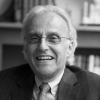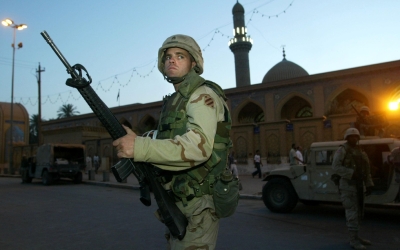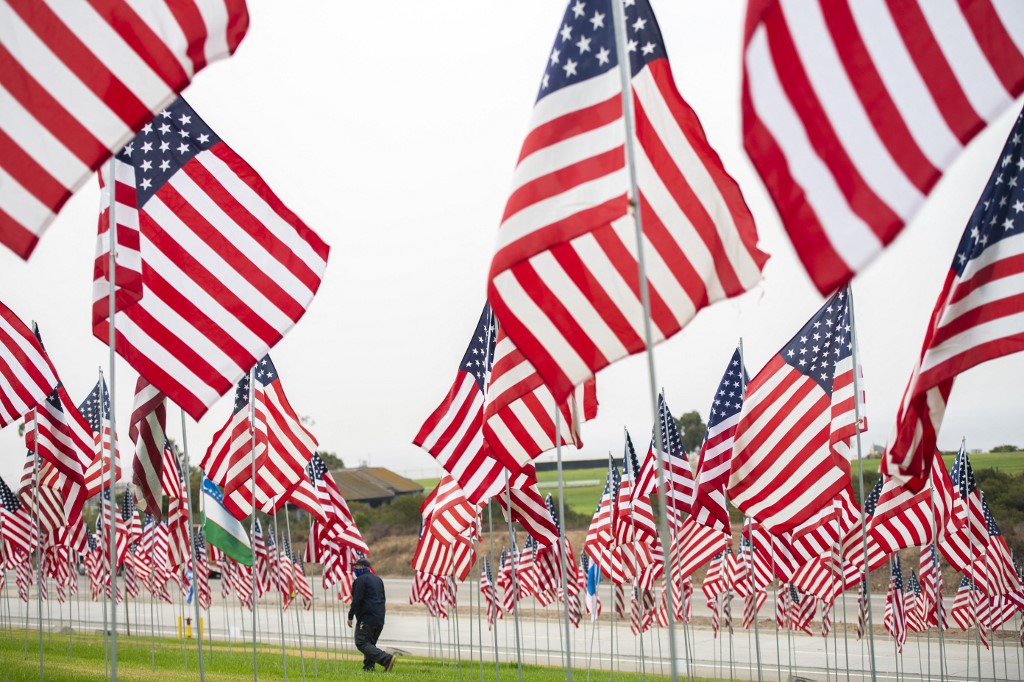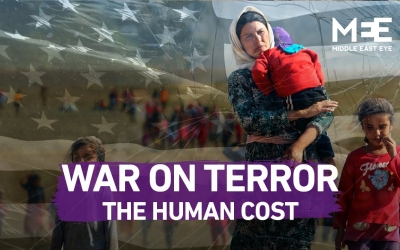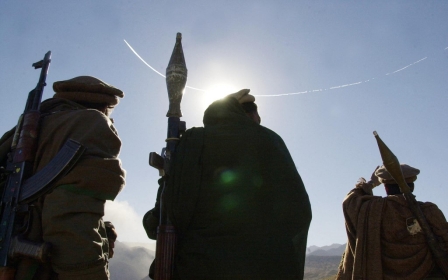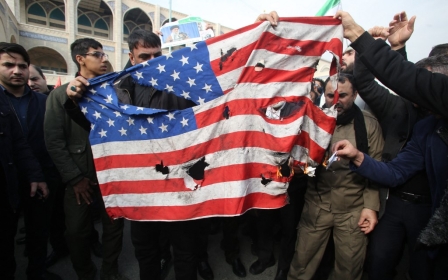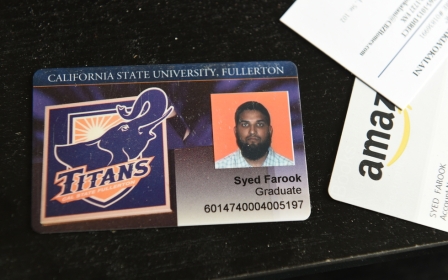9/11 attacks: A two-decade assault on US civil liberties
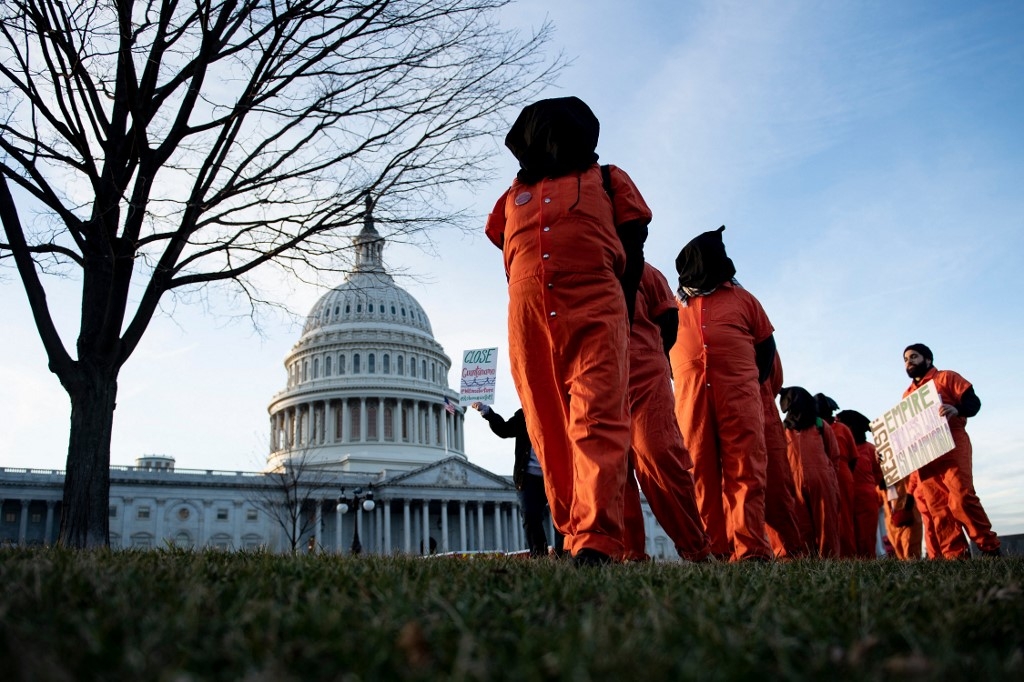
On 11 September 2001, my wife Jean and I were on the eastern shore of Maryland, where I often went to escape from the pace in Washington, relax and enjoy uninterrupted time to think and write. I can still remember sitting on the porch overlooking the bay, and commenting on what a beautiful, sunny day it was.
We were interrupted by a phone call from Pat Gordon, then the assistant director of Georgetown University’s Prince Alwaleed bin Talal Center for Muslim-Christian Understanding. “Turn your television on,” Gordon said. “There has been an air attack on the World Trade Center.”
No one was prepared for the magnitude of 9/11, which dealt a major blow to Muslim-West relations
What followed seemed incomprehensible. The attacks on the Twin Towers in New York and the Pentagon in Washington signalled the start of what former President George W Bush would call a war against global terrorism.
Without warning, a small group of militant followers of Osama Bin Laden destroyed the World Trade Center and severely damaged the Pentagon, symbols of American economic and military power. Close to 3,000 people were killed and thousands more were injured.
9/11 also triggered terrorist attacks in London, Madrid and Bali, pointing to an era of global terrorism and terrorist organisations. Subsequent attacks stretched from Europe, to the Middle East, to South and Southeast Asia. No one was prepared for the magnitude of 9/11, which dealt a major blow to Muslim-West relations - and to our center’s mission.
New MEE newsletter: Jerusalem Dispatch
Sign up to get the latest insights and analysis on Israel-Palestine, alongside Turkey Unpacked and other MEE newsletters
Weapons and guard dogs
My experience flying to LA reinforced the impacts of 9/11 and related security concerns. At the Dulles and Los Angeles airports, soldiers were on hand with weapons and guard dogs. Passengers underwent special security vetting, and workers electronically swept the seating areas at the gate.
Shortly after takeoff, the pilot told passengers that we also had a potential security role, noting that if we saw a suspicious person moving aggressively towards the cockpit door, we should intercept. I could not help but wonder what the role of the cabin crew should be.
The key word was “suspicious” - which could be interpreted as looking like “them”, looking like a Muslim, whatever that meant. As an Italian-American whose family came from southern Italy, my features met a similar description. The question of racial profiling of Muslims became a significant issue, feeding the growth of anti-Muslim attitudes and behaviours. This exaggerated fear of Muslims and Islam was later labelled Islamophobia.
Prominent media personalities and religious leaders joined a chorus of anti-Islam commentators. Pundit Ann Coulter militantly declared: “We should invade their countries, kill their leaders and convert them to Christianity. We weren’t punctilious about locating and punishing only Hitler and his top officers. We carpet-bombed German cities; we killed civilians. That’s war. And this is war.”
Christian evangelist Franklin Graham asserted that “Islam has attacked us”, noting: “Islam is a very evil religion … All the values that we as a nation hold dear, they don’t share the same values at all, these countries that have the majority of Muslims.”
'Send them all back'
In the aftermath of 9/11, my schedule changed dramatically. For the first time in my career, I did not travel internationally, but focused solely on travelling domestically across the US, observing and responding to the fallout from the attacks.
I was struck by how widespread the American response was, from New York to California: American flags fluttered on homes and vehicles, and patriotic slogans appeared in national and local media. The attacks were addressed in churches, synagogues and mosques.
And yes, there were the signs about “Others”, referring to Muslims. A gas station pictured in the New York Times featured a sign reading: “Send them all back to where they came from.”
The global war on terror
9/11 increased the center’s role and visibility exponentially, especially interviews in print and on television, government consulting and speaking engagements in the US, Europe and Muslim countries.
For several of us, it felt like a 24/7 schedule. I also wrote two books I had not previously intended to write. I had proposed a new edition of my book, The Islamic Threat: Myth or Reality? but it was suggested that we better have a new volume which led to my writing in Unholy War: Terror in the Name of Islam.
The 'war' against global terrorism sparked a wave of 'anti-terrorist' legislation whose application resulted in one of the most serious civil liberties crises in modern American history
However, half way through writing it, my wife pressed me to write a "Q&A What Everyone Needs to Know about Islam". She reminded me that my complaint after media and government interviews was often that I was often being asked the same questions by media and government people, questions I had been asked for decades.
Among the more common questions were: why is Islam such a violent religion? They would cite early Muslim imperial wars or the Crusades (believing erroneously that Muslims initiated the Crusades rather than Pope Urban II who called for it, declaring “God wills it”) while ignoring the role of warfare and violence in the Bible and in Christian empires and European colonialism.
In the immediate aftermath of the attacks, former Senator Dick Clark of Iowa, who had served on the Senate Foreign Relations Committee, invited me to speak to a group of senators and staff on the Hill. Then-senators John Kerry and Richard Lugar were among those who attended. Clark told me that in his experience, many members of Congress had other priorities, and usually relied on staff to report back on the Middle East.
Threats to US national security were nothing new, nor was using or misusing “national security” as a pretext for violating civil liberties. The detention of Japanese Americans during World War II is a textbook example. The “war” against global terrorism sparked a wave of “anti-terrorist” legislation and regulations whose application resulted in one of the most serious civil liberties crises in modern American history.
Extrajudicial procedures
Acting on what then attorney general John Ashcroft described as a new paradigm for prevention, the US administration, according to Georgetown law professor David Cole, “subjected 80,000 Arab and Muslim immigrants to fingerprinting and registration, sought out 8,000 Arab and Muslim men for FBI interviews, and imprisoned over 5,000 foreign nationals in antiterrorism preventive detention initiatives. As part of this program, the government adopted an aggressive strategy of arrest and prosecution, holding people on minor charges - in fact pretexts - such as immigration violations, credit card fraud, or false statements, or, when it had no charges at all, as ‘material witnesses’”.
The manipulation of domestic anti-terrorism legislation and policies, such as the Patriot Act (2001) and the use of “secret evidence” by some agencies and prosecutors, led to extrajudicial procedures and the erosion of civil liberties.
Muslims were profiled, wiretapped, arrested and imprisoned without due process
Muslims were profiled, wiretapped, arrested and imprisoned without due process. They were detained without charges, denied access to lawyers and to bail, and had evidence withheld from them. The circumvention of international law by designating prisoners “enemy combatants” and creating a prison in Guantanamo Bay, Cuba, resulted in indefinite detention with limited access to lawyers, along with trials before military tribunals that were not subject to judicial review.
In Cole’s co-authored book, Less Safe, Less Free, a study of the Bush administration’s anti-terrorism policies, the authors concluded: “In the name of preventing terrorism, the administration has locked up thousands of individuals without trial - within the United States and abroad - the vast majority of whom have never even been accused, much less convicted, of any terrorist act. President Bush invoked the "preventive" rationale to defend his secret order authorising the National Security Agency to spy on Americans without probable cause that they had engaged in any wrongdoing, without a court order, and contrary to a criminal prohibition on warrant-less wiretapping.”
Politicisation of terrorism cases
In the five years after 9/11, the Bush administration held more than 6,400 individuals referred under “terrorism”-related programmes. The politicisation of terrorism cases was reflected by the fact that some alleged to have been “terrorists” were not charged with anything more than a violation of disability insurance law, failure to file a tax return, or providing false statements.
By 2006, the government had decided that nearly two out of three (64 percent of) cases were not worth prosecuting, while nine percent more were dismissed or resulted in a finding of not guilty. Just one out of five was actually convicted of any crime, with only one percent receiving a substantial prison sentence. The majority of those sentenced received no prison time at all, and most of those who did received a sentence of a year or less.
The US military prison at Guantanamo Bay opened on 11 January 2002 to house suspected terrorists captured in the US-led global “War on Terror”. Located in Cuba, the naval base was chosen as the site of the military prison to enable the US government to argue that it was technically not on US soil, and thus, detainees were not covered by the US Constitution. The Bush administration also created a special “enemy combatant” category for Guantanamo prisoners, denying them US legal protections.
An estimated 780 Muslim men and boys were ultimately detained at Guantanamo; 731 were released without charges. Thirty-nine men currently remain imprisoned, only two of whom have actually been convicted.
In the wake of the 9/11 attacks, the center’s international advisory council had its annual meeting. Its co-chair Walid Khalidi, a distinguished Palestinian scholar and Harvard professor, presciently noted that despite the center's exceptional track record and accomplishments, 9/11 would set us back 20 years.
Although I did not comment, I privately thought his statement was a bit too negative. Sadly, I would come to realise just how wrong I was.
The views expressed in this article belong to the author and do not necessarily reflect the editorial policy of Middle East Eye.
This article is available in French on Middle East Eye French edition.
Middle East Eye delivers independent and unrivalled coverage and analysis of the Middle East, North Africa and beyond. To learn more about republishing this content and the associated fees, please fill out this form. More about MEE can be found here.


